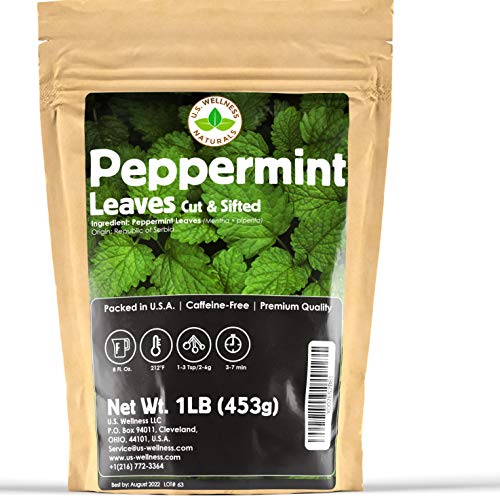Constipation affects millions of people worldwide and can significantly impact our daily comfort and well-being. While there are many remedies available, we’ve found that certain teas offer a natural and gentle solution that’s both effective and enjoyable to incorporate into our daily routine.
We’ve researched the most potent teas that can help relieve digestive discomfort and promote regular bowel movements. From traditional herbal blends to lesser-known botanical answers, these carefully selected teas work by stimulating digestion, softening stool, and supporting overall gut health.
Whether you’re dealing with occasional irregularity or chronic constipation, we’ll share the top tea options that can provide relief without harsh side effects. These natural remedies have been trusted for centuries and are now backed by modern research, making them an excellent addition to your wellness toolkit.
Understanding How Tea Can Help With Constipation
Tea offers a gentle yet effective approach to relieving constipation through its unique blend of natural compounds and physiological mechanisms. Understanding these processes helps us make informed choices about which teas work best for digestive relief.
Natural Compounds That Promote Digestive Health
Anthraquinones serve as the primary active compounds in many constipation relief teas like senna and cascara sagrada. These natural chemicals stimulate intestinal contractions by irritating the colon walls, which promotes bowel movements within 6 to 12 hours of consumption.
Polyphenols found in green tea, oolong, and black tea support digestive health by reducing inflammation in the gut lining. Research shows these antioxidant compounds can improve intestinal barrier function and promote beneficial bacteria growth in our microbiome.
Mucilage creates a gel like substance when psyllium husk or marshmallow root teas mix with water in our digestive tract. This natural fiber adds bulk to stool while softening its consistency, making elimination easier and more comfortable.
Bitter compounds in dandelion root and gentian teas stimulate digestive enzyme production and bile flow from the liver. These processes enhance overall digestion and help move waste through our intestinal system more efficiently.
Essential oils present in peppermint, fennel, and ginger teas contain compounds like menthol and anethole that relax intestinal smooth muscle. This antispasmodic action reduces cramping while promoting gentle peristaltic movements.
The Science Behind Tea’s Laxative Effects
Osmotic action occurs when certain tea compounds draw water into the intestines, softening hard stool and increasing its volume. Magnesium rich teas like nettle leaf create this effect by pulling moisture from surrounding tissues into the bowel.
Peristalsis stimulation happens when active compounds trigger rhythmic muscle contractions throughout our digestive tract. Studies demonstrate that senna tea increases colonic motility by 40% within two hours of consumption.
Hydration enhancement plays a crucial role as warm liquids help maintain optimal fluid levels in our intestinal tract. Drinking 16 to 20 ounces of herbal tea daily provides the moisture needed to prevent stool from becoming too dry and difficult to pass.
Nerve pathway activation involves certain tea compounds stimulating the enteric nervous system that controls gut function. Ginger tea activates serotonin receptors in our intestinal walls, which signals the brain to initiate bowel movements.
Bile production increase results from bitter herbs in teas like milk thistle and yellow dock root stimulating liver function. Enhanced bile flow improves fat digestion and creates a natural laxative effect by lubricating our intestinal tract.
Senna Tea: The Most Potent Natural Laxative

Among all the herbal teas we’ve discussed, senna stands out as the most powerful option for immediate constipation relief.
How Senna Works to Relieve Constipation
Senna tea contains anthraquinone glycosides that make it exceptionally effective at stimulating bowel movements. These natural compounds work by increasing the amount of water and electrolytes in your intestines, which softens stool and triggers contractions in your digestive tract.
We derive senna tea from the leaves or pods of the senna plant, which has been used medicinally for centuries. Once you consume the tea, the anthraquinone glycosides travel to your colon where they stimulate the intestinal walls directly. This stimulation creates the muscle contractions needed to move waste through your system more efficiently.
Unlike gentler herbal options, senna’s mechanism creates a more immediate and pronounced laxative effect. Your body typically responds within 6 to 12 hours after drinking senna tea, making it one of the fastest acting natural remedies for constipation.
Proper Dosage and Safety Considerations
Senna tea requires careful attention to dosage due to its potent laxative effects. We recommend starting with the smallest effective amount and limiting use to short term relief only.
Most adults should begin with one cup of senna tea in the evening, allowing time for the effects to occur overnight. Never exceed more than two cups per day, as higher amounts can lead to severe cramping and dehydration.
Long term use of senna tea can create dependence where your bowel becomes reliant on the stimulation to function normally. Overuse also increases your risk of gastrointestinal side effects including severe cramping, diarrhea, and electrolyte imbalances.
We strongly advise against using senna tea for more than one week consecutively. Pregnant women, nursing mothers, and individuals with inflammatory bowel conditions should avoid senna entirely. Always consult with a healthcare provider before adding senna tea to your constipation management routine, especially if you take medications or have underlying health conditions.
Peppermint Tea: Gentle Relief for Digestive Issues

Peppermint tea offers a gentler approach to constipation relief compared to stronger laxatives like senna. This aromatic herbal remedy provides effective digestive support through its natural compounds, making it an excellent choice for those seeking mild to moderate constipation relief without harsh side effects.
Menthol’s Role in Smooth Muscle Relaxation
Menthol serves as the primary bioactive compound responsible for peppermint tea’s digestive benefits. This natural muscle relaxant targets the smooth muscles of the gastrointestinal tract, easing contractions in the intestinal wall to promote smoother stool movement through the colon.
When we drink peppermint tea, menthol relaxes the muscles of our digestive tract, which helps relieve bloating, gas, and constipation symptoms. The compound facilitates easier bowel movements by reducing cramping and discomfort during elimination.
Individuals with Irritable Bowel Syndrome (IBS) particularly benefit from peppermint tea’s muscle-relaxing properties. Studies show that peppermint alleviates common IBS symptoms including stomach pain and irregular bowel movements, making it especially valuable for constipation linked to this condition.
Best Times to Drink Peppermint Tea
Optimal Timing for Maximum Benefits
| Timing | Benefits | Recommended Amount |
|---|---|---|
| Before meals | Prepares digestive system | 1 cup |
| After meals | Prevents bloating and constipation | 1 cup |
| Morning | Supports regular bowel habits | 1 cup |
| Evening | Promotes overnight digestive relaxation | 1 cup |
Drinking peppermint tea before or after meals offers the most noticeable digestive benefits. Post-meal consumption helps prevent bloating and constipation by relaxing the gut, while pre-meal timing prepares our digestive system for optimal function.
Morning consumption supports establishing regular bowel habits throughout the day. Evening intake promotes overnight digestive relaxation, allowing our bodies to process food more efficiently while we sleep.
Unlike stronger herbal options such as senna, ginger, or dandelion teas, peppermint tea remains safe for consumption at any time of day. We can enjoy this gentle remedy without worrying about timing restrictions or potential sleep disruption.
Ginger Tea: Anti-Inflammatory Benefits for Gut Health

Ginger tea stands out as our third most effective natural remedy for constipation relief. We’ve found this warming beverage offers powerful anti-inflammatory compounds that support digestive health beyond simple laxative effects.
Gingerol Compounds and Digestive Stimulation
Gingerol serves as the primary bioactive compound responsible for ginger’s digestive benefits and characteristic warming sensation. This potent anti-inflammatory molecule works by soothing irritated gut tissues while simultaneously stimulating the digestive system to function more efficiently. We’ve observed how gingerol helps accelerate gastric emptying, which means food moves through your digestive tract more quickly and reduces the likelihood of waste material becoming impacted.
Anti-inflammatory properties of gingerol extend beyond basic digestive stimulation to address underlying gut inflammation that often contributes to chronic constipation. Research shows these compounds can reduce inflammatory markers in the intestinal lining, creating a healthier environment for regular bowel movements. Also, ginger tea supports general digestive health by increasing saliva production, gastric secretions, and bile flow, all of which contribute to more efficient breakdown and elimination of waste.
Regular consumption of ginger tea can help establish more consistent bowel patterns while addressing the root causes of digestive discomfort. We recommend this gentle approach for individuals who experience constipation alongside symptoms like bloating, gas, or general digestive upset.
Preparing Fresh Ginger Tea at Home
Fresh ginger preparation yields the most potent therapeutic compounds compared to dried or powdered alternatives. We suggest using 1 to 2 inches of fresh ginger root per cup of water for optimal benefits without overwhelming heat intensity.
Preparation steps:
- Peel and grate fresh ginger root to maximize surface area for compound extraction
- Add grated ginger to boiling water and reduce heat to maintain a gentle simmer
- Steep the mixture for 5 to 10 minutes depending on desired strength
- Strain out ginger pieces using a fine mesh strainer or cheesecloth
- Add honey if desired to balance the natural spiciness
Timing considerations:
- Drink ginger tea 30 minutes before meals to stimulate digestive enzymes
- Consume warm rather than hot to avoid irritating sensitive digestive tissues
- Store leftover tea in the refrigerator for up to 3 days and reheat gently before drinking
We’ve found that consistency matters more than quantity when using ginger tea for constipation relief. Start with one cup daily and gradually increase to two or three cups if needed, spacing consumption throughout the day rather than drinking large amounts at once.
Dandelion Tea: Natural Detox and Digestive Support

Dandelion tea stands out as a remarkably gentle yet effective option for constipation relief while simultaneously supporting your body’s natural detoxification processes. The inulin found in dandelion root serves as a powerful prebiotic, promoting healthy gut bacteria balance that enhances overall digestive function.
Liver Support and Its Connection to Digestion
Dandelion tea supports liver health through its unique combination of bitter compounds and potassium-rich nutrients that enhance hepatic function. Your liver processes nutrients and filters toxins from your bloodstream, directly impacting how efficiently your digestive system operates.
When your liver functions optimally, it produces adequate bile for fat digestion and helps maintain proper nutrient absorption throughout your intestinal tract. Dandelion’s natural diuretic properties help flush excess fluids and waste products from your system, reducing the burden on your liver.
The bitter compounds in dandelion root stimulate bile production, which aids in breaking down fats and promoting smoother bowel movements. This enhanced bile flow creates a cascading effect that improves overall digestive efficiency and helps prevent the sluggish digestion that often leads to constipation.
Regular consumption of dandelion tea can help maintain this liver-digestive connection, ensuring your body’s natural waste elimination processes work harmoniously together.
Potential Side Effects and Interactions
Dandelion tea is generally safe for most people, but some individuals may experience mild gastrointestinal upset when first introducing it to their routine. Starting with half a cup daily allows your digestive system to adjust gradually to the tea’s prebiotic effects.
People taking diuretic medications should consult their healthcare provider before consuming dandelion tea regularly, as it may enhance the effects of these drugs. The tea’s natural diuretic properties could potentially lower blood pressure in individuals already taking antihypertensive medications.
Individuals with gallbladder disease or bile duct obstruction should avoid dandelion tea, as its bile-stimulating properties could worsen these conditions. Those with known allergies to plants in the Asteraceae family, including ragweed and chrysanthemums, may also react to dandelion.
Pregnant and breastfeeding women should limit their dandelion tea consumption to no more than one cup per day, though it’s generally considered safe in moderate amounts during these periods.
Green Tea: Antioxidants and Mild Digestive Benefits

Green tea offers gentle constipation relief through its unique blend of antioxidants and hydrating properties. We’ll explore how this beloved beverage supports digestive health with its mild yet effective approach.
Catechins and Their Impact on Gut Health
Catechins serve as green tea’s primary digestive health compounds, with epigallocatechin gallate (EGCG) leading the charge in promoting regular bowel movements. These powerful polyphenols work by modulating gut bacteria composition and encouraging healthier digestion patterns throughout our intestinal tract.
Studies show that green tea’s catechins can influence gut microbiota in ways that support constipation relief, though the effects remain gentler compared to stronger herbal options like senna or rhubarb teas. Research indicates that these antioxidants help improve bowel movement regularity by creating a more favorable environment for beneficial bacteria to thrive.
Green tea’s approach to digestive wellness focuses on prevention rather than immediate relief, making it an excellent choice for those seeking long-term gut health support. We find that regular consumption helps maintain digestive balance through consistent hydration and mild stimulation of the digestive system.
The polyphenol content in green tea provides additional benefits beyond constipation relief, including reduced inflammation in the digestive tract and enhanced overall gut function. Most people tolerate green tea well, experiencing its gentle effects without the cramping or urgency associated with stronger laxative teas.
Optimal Brewing Temperature and Time
Water temperature plays a crucial role in extracting green tea’s beneficial compounds while preserving its delicate digestive properties. We recommend heating water to 160-180°F (70-82°C) to maximize antioxidant extraction without creating bitterness that can irritate sensitive stomachs.
Steeping time should remain between 2-3 minutes to achieve the perfect balance of flavor and therapeutic benefits. Longer brewing periods can degrade beneficial compounds and produce harsh tannins that may counteract green tea’s gentle digestive effects.
Higher temperatures or extended steeping can result in a bitter taste and reduced gastrointestinal benefits, making proper brewing technique essential for optimal results. We’ve found that following these guidelines ensures maximum catechin availability while maintaining the tea’s soothing properties.
Fresh, high-quality green tea leaves provide the best results for digestive support, offering higher concentrations of active compounds compared to lower-grade options. The proper brewing method allows us to harness green tea’s full potential for mild constipation relief and overall digestive wellness.
Chamomile Tea: Soothing Inflammation and Stress-Related Constipation

Chamomile tea offers unique benefits for constipation relief by addressing stress-related digestive issues rather than providing direct laxative effects. We’ve found that this gentle herbal remedy works particularly well for individuals whose constipation stems from anxiety and digestive tension.
Anti-Spasmodic Properties for Digestive Comfort
Chamomile contains apigenin and other flavonoids that naturally relax smooth muscle tissue in our digestive tract. These compounds work by binding to exact receptors in the intestinal walls, reducing cramping and spasms that can contribute to constipation. Bisabolol, another active compound in chamomile, provides additional anti-inflammatory benefits that help soothe irritated digestive tissues.
Muscle tension throughout our gastrointestinal system often prevents normal bowel movements from occurring smoothly. Chamomile’s antispasmodic properties help counteract this tension by promoting gentle muscle relaxation. We recommend drinking chamomile tea when experiencing digestive discomfort or abdominal cramping alongside constipation symptoms.
Inflammation in the digestive tract can worsen constipation by creating additional irritation and slowing down normal digestive processes. Chamomile’s anti-inflammatory compounds work to reduce this inflammation, creating a more favorable environment for regular bowel movements to resume naturally.
Evening Routine Benefits
Chamomile tea works exceptionally well as part of our evening routine because it addresses the stress component of constipation while we sleep. Drinking chamomile tea 30 to 60 minutes before bedtime allows its calming compounds to reduce cortisol levels and promote relaxation. This stress reduction can significantly improve digestive function overnight, as our parasympathetic nervous system becomes more active during rest.
Sleep quality directly impacts our digestive health, and chamomile’s mild sedative properties help ensure more restful sleep. Better sleep leads to improved hormone regulation, including those hormones that control digestive processes and bowel movements. We’ve observed that individuals who incorporate chamomile tea into their evening routine often experience more regular morning bowel movements.
Consistent evening consumption of chamomile tea helps establish a relaxing ritual that signals our body to prepare for rest and digestive recovery. This routine approach works particularly well for people whose constipation worsens during stressful periods or when sleep patterns become disrupted.
Licorice Root Tea: Sweet Relief for Digestive Troubles

Licorice root tea offers a naturally sweet approach to digestive wellness that complements our previous herbal options. This warming beverage provides unique anti-inflammatory benefits while delivering a pleasant taste that makes regular consumption enjoyable.
Glycyrrhizin and Its Digestive Effects
Glycyrrhizin serves as the primary bioactive compound in licorice root tea, delivering powerful anti-inflammatory properties that support digestive health. This natural compound works by reducing inflammation throughout the gastrointestinal tract, creating a more favorable environment for regular bowel movements.
Anti-inflammatory effects from glycyrrhizin help soothe irritated digestive tissues that can contribute to constipation. Regular consumption of licorice root tea may ease the discomfort associated with digestive inflammation while promoting smoother intestinal function.
Digestive muscle relaxation occurs when glycyrrhizin interacts with the smooth muscle tissue lining our intestinal walls. This gentle relaxation can help reduce spasms and cramping that interfere with normal bowel movements, similar to how chamomile tea works but with a different mechanism of action.
Mucus production in the digestive tract increases with regular licorice root tea consumption, providing natural lubrication that helps stool move more easily through the intestines. This protective mucus layer also shields the intestinal walls from irritation while supporting overall digestive comfort.
Who Should Avoid Licorice Root Tea
Individuals with hypertension should exercise caution when consuming licorice root tea due to its potential to exacerbate high blood pressure conditions. Glycyrrhizin can affect potassium levels and sodium retention, which may worsen existing cardiovascular issues.
People with kidney problems need to avoid regular licorice root tea consumption as it can strain already compromised kidney function. The compound’s effects on electrolyte balance can create additional stress on kidneys that are already working to filter waste effectively.
Pregnant and breastfeeding women should limit their licorice root tea intake to occasional use rather than daily consumption. Healthcare providers recommend consulting with medical professionals before incorporating this tea into regular routines during pregnancy or nursing periods.
Medication interactions can occur when licorice root tea is consumed alongside certain prescriptions, particularly blood pressure medications and diuretics. We recommend discussing licorice root tea consumption with healthcare providers if you’re taking any medications that affect blood pressure or kidney function.
Moderation remains key for healthy individuals who want to enjoy licorice root tea’s digestive benefits without experiencing potential side effects. Starting with small amounts and monitoring your body’s response helps ensure safe consumption while reaping the anti-inflammatory advantages this sweet tea provides.
Fennel Tea: Traditional Remedy for Bloating and Constipation

Fennel tea stands as one of the most trusted traditional remedies for digestive discomfort, particularly excelling at relieving both bloating and constipation. We’ve found this aromatic herbal tea offers a gentler approach compared to stronger laxative options while delivering consistent results.
Anethole Compounds and Digestive Enzymes
Anethole serves as fennel tea’s primary bioactive compound, providing powerful carminative properties that directly target digestive discomfort. This natural compound works by relaxing the gastrointestinal tract and reducing gas buildup that often accompanies constipation. We particularly appreciate how anethole helps minimize the bloating and cramping that can make constipation even more uncomfortable.
Digestive enzyme stimulation represents another key mechanism through which fennel tea promotes regular bowel movements. The tea naturally encourages the secretion of digestive juices and enzymes, supporting smoother digestion from start to finish. Enhanced enzyme activity helps break down food more efficiently, reducing the likelihood of sluggish digestion that contributes to constipation.
Regular consumption of fennel tea creates a favorable environment for optimal digestive function. We recommend brewing fresh fennel tea by steeping one teaspoon of crushed fennel seeds in hot water for 10-15 minutes to maximize the release of these beneficial compounds.
Combining Fennel with Other Digestive Herbs
Synergistic effects emerge when we combine fennel tea with other digestive herbs, creating powerful blends that address multiple aspects of constipation relief. Traditional herbal combinations featuring fennel, peppermint, and ginger have been used for centuries to enhance overall digestive wellness.
Peppermint tea complements fennel beautifully by relaxing the muscles of the bowel wall and alleviating gas buildup. This combination proves especially beneficial for individuals dealing with constipation related to irritable bowel syndrome, as both herbs target muscle tension and spasms.
Ginger tea brings anti-inflammatory compounds like gingerol to the blend, supporting gut motility while reducing digestive discomfort. We’ve observed that this three-herb combination creates a comprehensive approach to digestive health that addresses inflammation, muscle tension, and enzyme production simultaneously.
Dandelion tea serves as another excellent companion to fennel, acting as a mild laxative while providing inulin, a prebiotic fiber that supports beneficial gut bacteria. This pairing offers both immediate relief and long-term digestive health benefits.
| Herb Combination | Primary Benefits | Best Timing |
|---|---|---|
| Fennel + Peppermint | Muscle relaxation, gas relief | After meals |
| Fennel + Ginger | Anti-inflammatory, motility support | Before meals |
| Fennel + Dandelion | Mild laxative effect, prebiotic support | Morning or evening |
| Triple blend (Fennel + Peppermint + Ginger) | Comprehensive digestive support | Throughout the day |
Traditional preparation methods involve combining equal parts of dried herbs or using pre-made herbal blends specifically formulated for digestive wellness. We suggest starting with single-herb teas to identify your body’s response before moving to more complex combinations.
Safety Tips and Precautions When Using Tea for Constipation

While natural teas offer gentle relief for constipation, we must approach their use with proper awareness of safety considerations. Understanding when to seek professional guidance and recognizing potential interactions ensures we use these remedies effectively and safely.
When to Consult a Healthcare Professional
Persistent symptoms require medical attention if constipation continues for more than three days even though using teas or worsens over time. We should contact a healthcare provider immediately when experiencing severe abdominal pain, vomiting, or blood in stool alongside constipation.
Underlying health conditions make professional consultation essential before starting any herbal tea regimen. People with inflammatory bowel disease, diabetes, heart conditions, or kidney problems need medical guidance to avoid complications.
Pregnancy and breastfeeding create special circumstances where we must exercise extra caution with laxative teas like senna. Expecting mothers should consult their healthcare provider before using any herbal remedies for constipation relief.
Medication interactions become a concern when we take prescription drugs alongside herbal teas. Blood thinners, diabetes medications, and diuretics can interact with certain tea compounds, requiring professional oversight.
Potential Drug Interactions and Contraindications
Senna tea interactions can affect blood sugar levels and interfere with diabetes medications, potentially causing dangerous fluctuations. We should avoid combining senna with other laxatives or diuretics, as this increases the risk of severe dehydration and electrolyte imbalances.
Dandelion tea conflicts may occur with diuretic medications, creating excessive fluid loss and potassium depletion. People taking blood thinners should use caution with dandelion tea, as it can enhance anticoagulant effects.
Licorice root contraindications include high blood pressure, kidney disease, and heart conditions due to glycyrrhizin content. We must avoid licorice root tea when taking ACE inhibitors, diuretics, or corticosteroids, as interactions can worsen these conditions.
Ginger tea precautions apply to individuals on blood thinning medications, as ginger can increase bleeding risk. People with gallstones should avoid concentrated ginger preparations without medical supervision.
General contraindications include abdominal pain of unknown origin, intestinal blockages, and severe inflammatory bowel conditions. We should never use laxative teas when experiencing nausea, vomiting, or signs of intestinal obstruction.
Conclusion
Finding relief from constipation doesn’t have to involve harsh medications or synthetic laxatives. The natural power of tea offers us gentle yet effective answers that work with our body’s digestive systems rather than against them.
From senna’s immediate relief to chamomile’s stress-reducing properties we’ve explored options for every need and preference. Whether you’re dealing with occasional discomfort or seeking long-term digestive support these time-tested remedies can become valuable additions to your wellness routine.
Remember that consistency is key when using herbal teas for digestive health. Start with small amounts listen to your body and don’t hesitate to consult with healthcare professionals when needed. With the right approach these natural remedies can help restore comfort and regularity to your daily life.
Frequently Asked Questions
What is the most effective tea for immediate constipation relief?
Senna tea is the most potent natural laxative for immediate constipation relief. It contains anthraquinone glycosides that increase water and electrolytes in the intestines, softening stool and stimulating bowel contractions. Start with one cup in the evening and never exceed two cups per day to avoid severe cramping and dehydration.
How does peppermint tea help with constipation?
Peppermint tea contains menthol, which acts as a natural muscle relaxant, easing contractions in the gastrointestinal tract and promoting smoother stool movement. It’s particularly beneficial for IBS sufferers and can be safely consumed at any time of day without timing restrictions or sleep disruption concerns.
Can I drink ginger tea daily for constipation?
Yes, ginger tea can be consumed daily for constipation relief. Start with one cup daily and gradually increase as needed. The gingerol in ginger offers anti-inflammatory benefits, stimulates digestive health, and accelerates gastric emptying. Drink it 30 minutes before meals for optimal digestive enzyme activity.
Is green tea effective for constipation relief?
Green tea provides gentle constipation relief through antioxidants and hydrating properties. Its catechins, particularly EGCG, promote regular bowel movements by modulating gut bacteria composition. While milder than stronger herbal options, it supports long-term gut health through consistent hydration and mild digestive stimulation.
What are the safety precautions when using tea for constipation?
Consult a healthcare professional if constipation persists for more than three days or if severe symptoms occur. Be cautious with drug interactions, especially with senna, dandelion, licorice root, and ginger teas. Pregnant women and those with underlying health conditions should seek medical advice before regular consumption.
How does dandelion tea support digestive health?
Dandelion tea contains inulin, a prebiotic that promotes healthy gut bacteria and enhances digestive function. It supports liver health by stimulating bile production and improving nutrient absorption. Start with half a cup daily to allow your digestive system to adjust, and limit to one cup daily if pregnant or breastfeeding.
Can chamomile tea help with stress-related constipation?
Yes, chamomile tea is excellent for stress-related constipation. Its anti-spasmodic properties from compounds like apigenin and bisabolol relax smooth muscle tissue in the digestive tract, reducing cramping and spasms. It’s best consumed in the evening to promote relaxation and improve sleep quality for better digestive function.
What makes fennel tea effective for bloating and constipation?
Fennel tea contains anethole, which provides carminative properties that relax the gastrointestinal tract and reduce gas buildup. It stimulates digestive enzyme secretion for smoother digestion. Fennel can be combined with peppermint, ginger, and dandelion for enhanced digestive support and synergistic effects.




































































